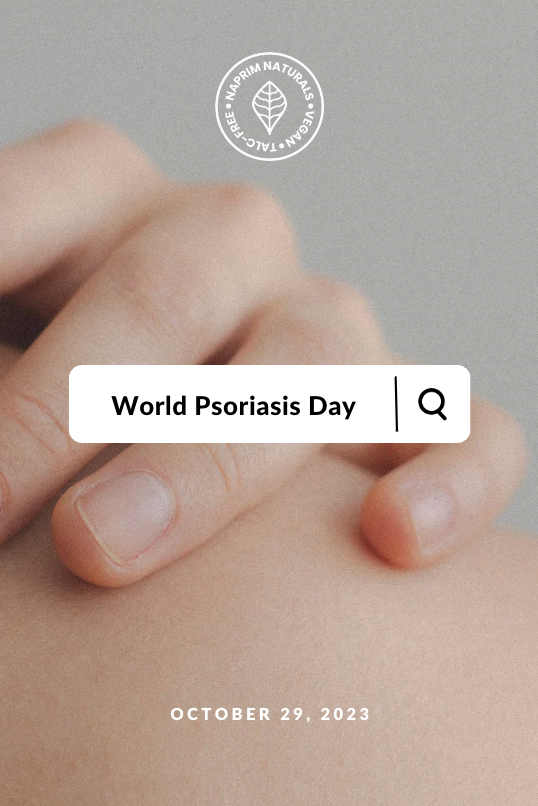
World Psoriasis Day (Oct. 29)
Share
As World Psoriasis Day approaches this month, we want to continue educating our customers about the condition, its causes, treatments, and how it can impact a person’s physical, emotional and well-being.
Psoriasis is a chronic autoimmune skin condition that is characterized by the rapid buildup of skin cells that results in red, itchy, and scaly patches on the skin's surface. It is considered an autoimmune disease because it occurs when the immune system mistakenly targets healthy skin cells and causes them to reproduce at an accelerated rate.
In the United States, it is estimated that nearly 9 million people have psoriasis, making it one of the most common autoimmune diseases in the country. Globally, it is estimated between 125 to 250 million people suffer from psoriasis. Despite the number of people suffering from this condition, there are still many misunderstandings about psoriasis, including:
Psoriasis is just a skin problem: While psoriasis primarily affects the skin, it's actually an autoimmune condition that involves the immune system attacking healthy skin cells. It can also lead to various other health issues, such as psoriatic arthritis, cardiovascular problems, and an increased risk of certain other conditions.
Psoriasis is contagious: Psoriasis is NOT contagious. It cannot be spread through touch, sharing personal items, or being in close proximity to someone with psoriasis. It's an internal autoimmune disorder and not caused by bacteria, viruses, or other microorganisms.
It's caused by poor hygiene: Psoriasis is not caused by poor hygiene or cleanliness. It's an autoimmune condition influenced by genetic and environmental factors. Individuals with psoriasis may have a genetic predisposition that, when triggered by certain factors, leads to the development of the condition.
Psoriasis is just a cosmetic issue: Psoriasis can have a significant impact on a person's quality of life. It's not just about the physical appearance of the skin; it can also cause discomfort, pain, itching, and emotional distress. Many people with psoriasis may experience social isolation, anxiety, and depression due to the condition.
Psoriasis only affects older people: Psoriasis can develop at any age, from childhood to adulthood. While it's more common for psoriasis to appear in adulthood, it's not limited to older individuals. Pediatric psoriasis is also a recognized condition that affects children and adolescents.
Sun exposure can cure psoriasis: While some people with psoriasis find that their symptoms improve with exposure to sunlight, it's not a guaranteed cure. Sunlight can help reduce inflammation and slow skin cell growth, but excessive sun exposure can also worsen psoriasis or increase the risk of skin cancer. Sunlight therapy should be used under medical supervision.
There's a single, universal treatment for psoriasis: Psoriasis is a complex condition with varying levels of severity and different triggers for each individual. Treatment approaches need to be personalized based on factors such as the type of psoriasis, its severity, the person's medical history, and their response to different therapies. NAPRIM Natural’s talc-free Nourishing Powder was created to help reduce inflammation, redness, dryness, and irritation caused by skin conditions including psoriasis. Our calming skin powder is formulated with soothing natural ingredients such as arrowroot, kaolin clay, chamomile flower, and calendula flower. These plant-based ingredients are perfect for those with sensitive skin or prone to breakouts.
To apply our soothing powder to affected areas, sift up the right amount of product and use a cotton ball, pad, or kabuki brush to pick up the powder. Apply the powder to the targeted spot on the skin and reapply as needed throughout the day.
Psoriasis Awareness Month aims to improve the lives of people living with the condition, encourage access to effective treatments and promote research for better therapies and, ultimately, a cure.
